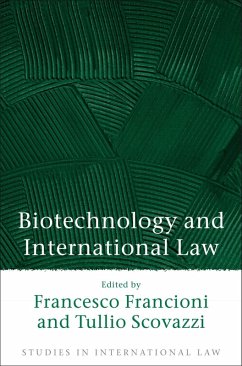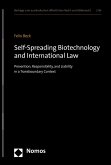As with any rapid technological development, the biotechnology revolution is putting great strains on the ability of law to adapt to new challenges and threats. Although there is general agreement on the need to regulate biotechnology in many different fields of human activity (agriculture, life sciences, forensic science) domestic law remains deeply divided over the best approach to take. This book is the first attempt at covering the most pressing legal issues raised by the impact of biotechnologies on different categories of international norms. Through the contribution of a selected group of international scholars and experts from international organizations, the book addresses
1) the international status of genetic resources, both in areas of national jurisdiction and in common spaces such as the international sea bed area and Antarctica;
2) the relevance of environmental principles in the governance of modern biotechnologies;
3) the impact of biotechnologies on trade rules, including intellectual property law;
4) the human rights implications, especially in the field of human genetics; and
5) the intersection between general international law and regional systems, especially those developed in Europe and Latin America.
The overall objective of the book is to provide an up-to-date picture of international law as it stands today and to stimulate critical reflection and further research on the solutions that will be required in years to come.
1) the international status of genetic resources, both in areas of national jurisdiction and in common spaces such as the international sea bed area and Antarctica;
2) the relevance of environmental principles in the governance of modern biotechnologies;
3) the impact of biotechnologies on trade rules, including intellectual property law;
4) the human rights implications, especially in the field of human genetics; and
5) the intersection between general international law and regional systems, especially those developed in Europe and Latin America.
The overall objective of the book is to provide an up-to-date picture of international law as it stands today and to stimulate critical reflection and further research on the solutions that will be required in years to come.









